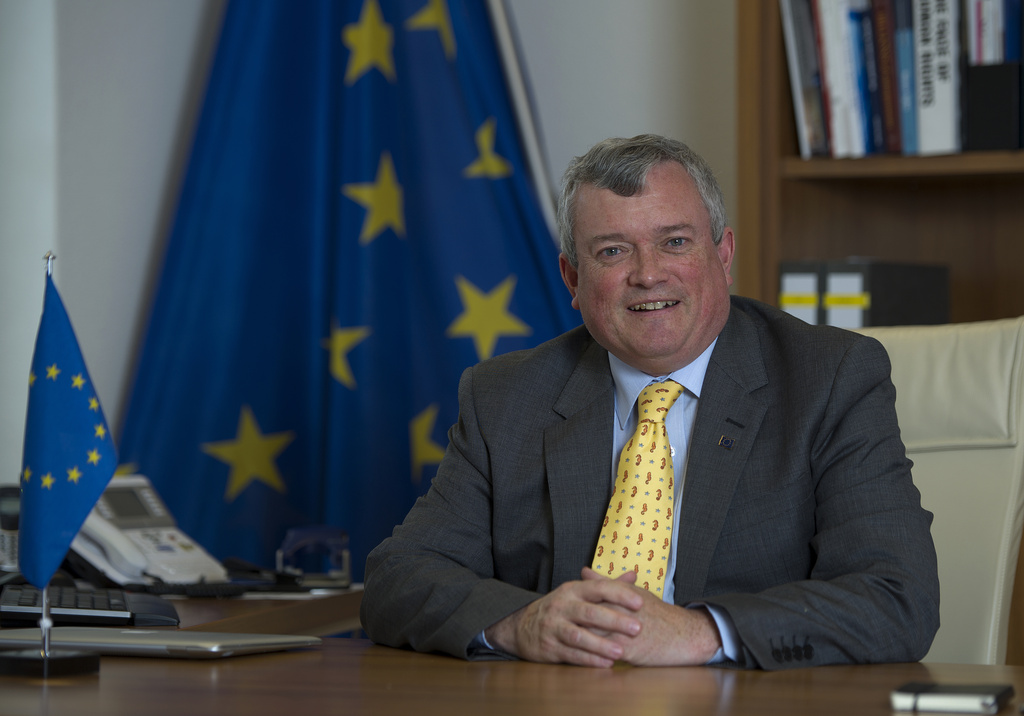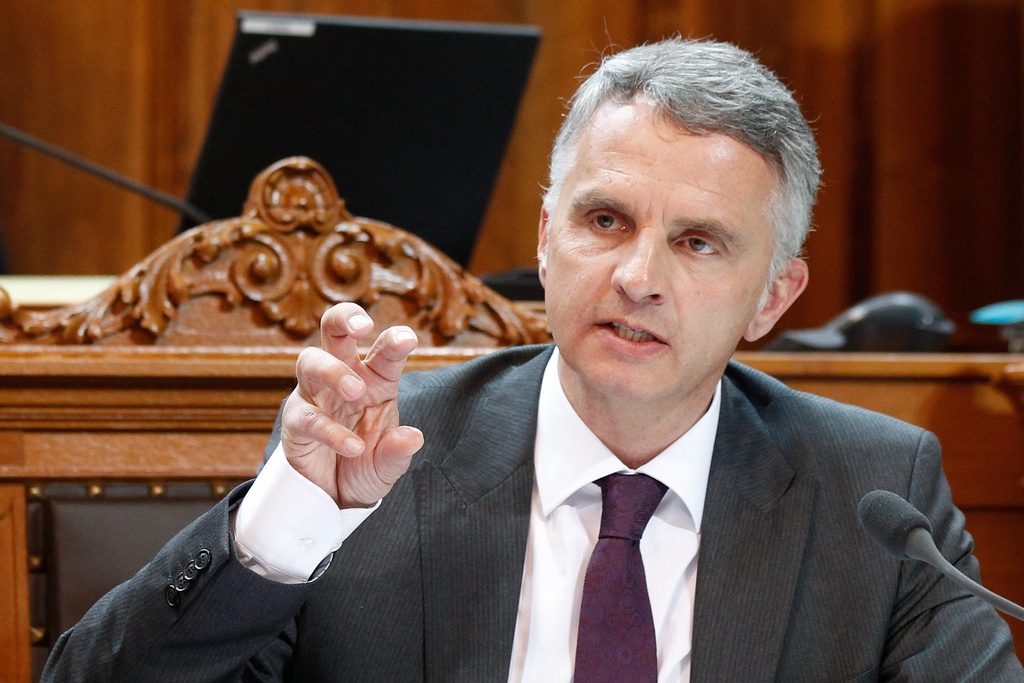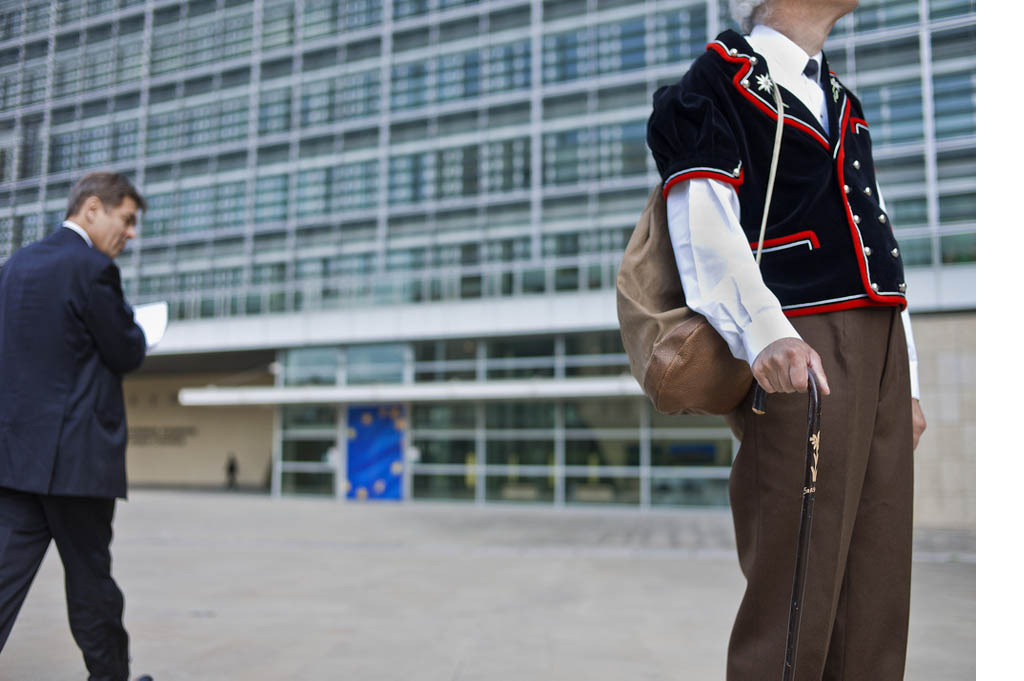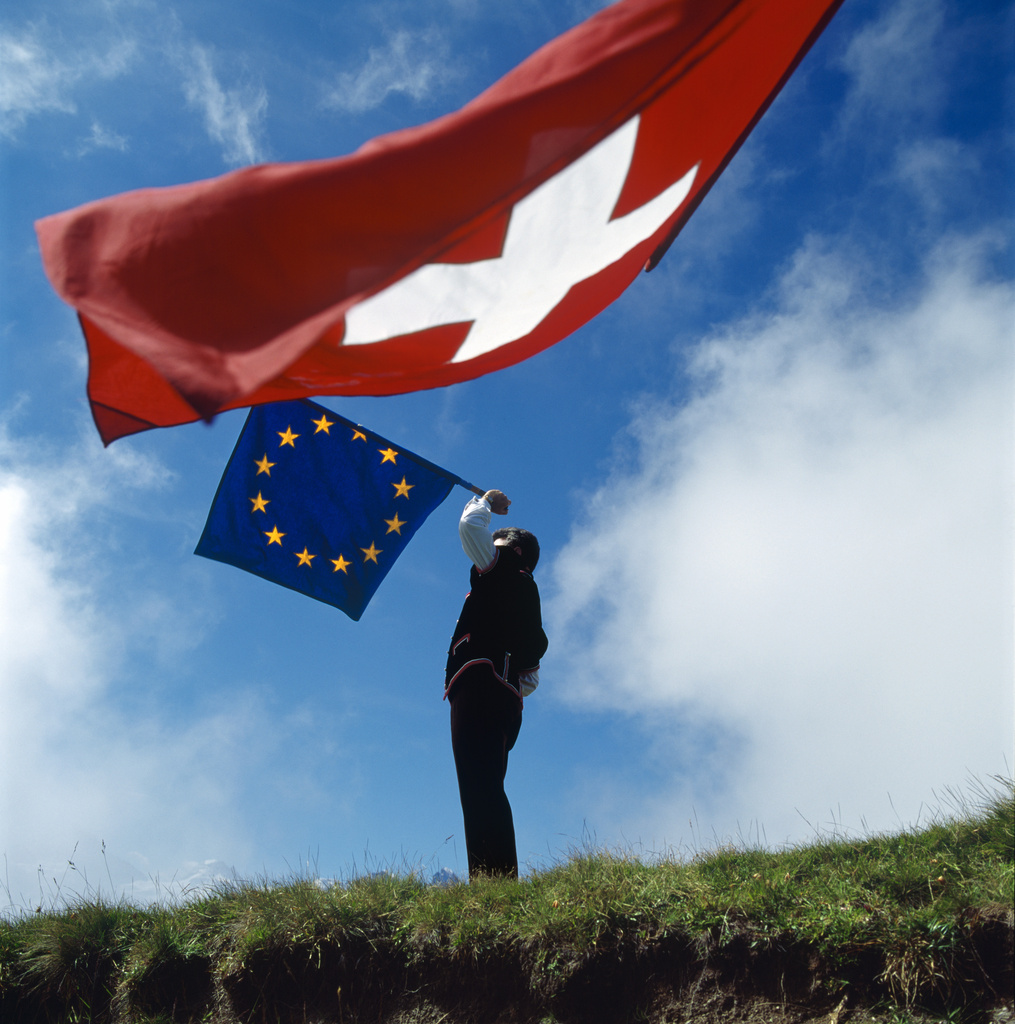Bilaterals – what next?
Since 1992, when the Swiss electorate narrowly voted against joining the European Economic Area (EEA), Switzerland has signed a series of bilateral accords with the European Union (EU). But this path is becoming increasingly stony.
The EU is not only demanding Switzerland adopt EU law but also wants joint supervisory bodies and jurisdiction over the implementation of the bilateral accords.
This is diametrically opposed to the deep-rooted Swiss understanding of sovereignty. Foreign judges – so the general feeling goes – have no business in Switzerland. Yet at the same time Swiss exporters have a fundamental interest in access to the European domestic market being as free as possible – and without bilateral accords this wouldn’t be possible.
What do you think? What should Switzerland do? How would you solve the conflict between Switzerland and the EU?
The Swiss government decided in 1992 to apply for negotiations on EU membership. The application is currently shelved.
The government’s 2006 report on European integration stated that the Swiss policy is based on bilateral treaties.
In August 2010 the government published a report on the country’s European integration policy, which declared that bilateral accords were still the best way to work with the EU, despite increasing difficulties.
It has concluded 20 major bilateral agreements with the bloc.
There are also about 100 secondary bilateral accords between Bern and Brussels.
Bilateral treaty I
(1999) focused on opening up markets, the free movement of persons, technical barriers to trade, public markets, agriculture, air, road and rail transport and Swiss participation in EU research programmes.
Bilateral treaty II
(2004) covered new economic interests and extended to cooperation and political questions (internal security, asylum, environment and culture), the Schengen/Dublin Accords, savings tax, processed agricultural products, media, environment, statistics, fraud, pensions, education and professional training.
Negotiations are underway to update existing accords (the free movement of persons, technical barriers to trade, public markets, air transport, processed agricultural products,) There are plans to adapt the accords on savings tax and fraud.
New talks were launched in 2007 for electricity, agriculture, health, consumer protection issues, food chain and product safety, chemical product safety and company taxation.
The list should extend to other areas such as satellite navigation, cooperation on competition law, supervision of financial markets and access to the market of financial intermediaries.

More
EU ambassador rejects Swiss supervisory plan

More
Foreign policy refocuses on Europe

More
Tense year looms in EU relations

In compliance with the JTI standards
More: SWI swissinfo.ch certified by the Journalism Trust Initiative

You can find an overview of ongoing debates with our journalists here . Please join us!
If you want to start a conversation about a topic raised in this article or want to report factual errors, email us at english@swissinfo.ch.